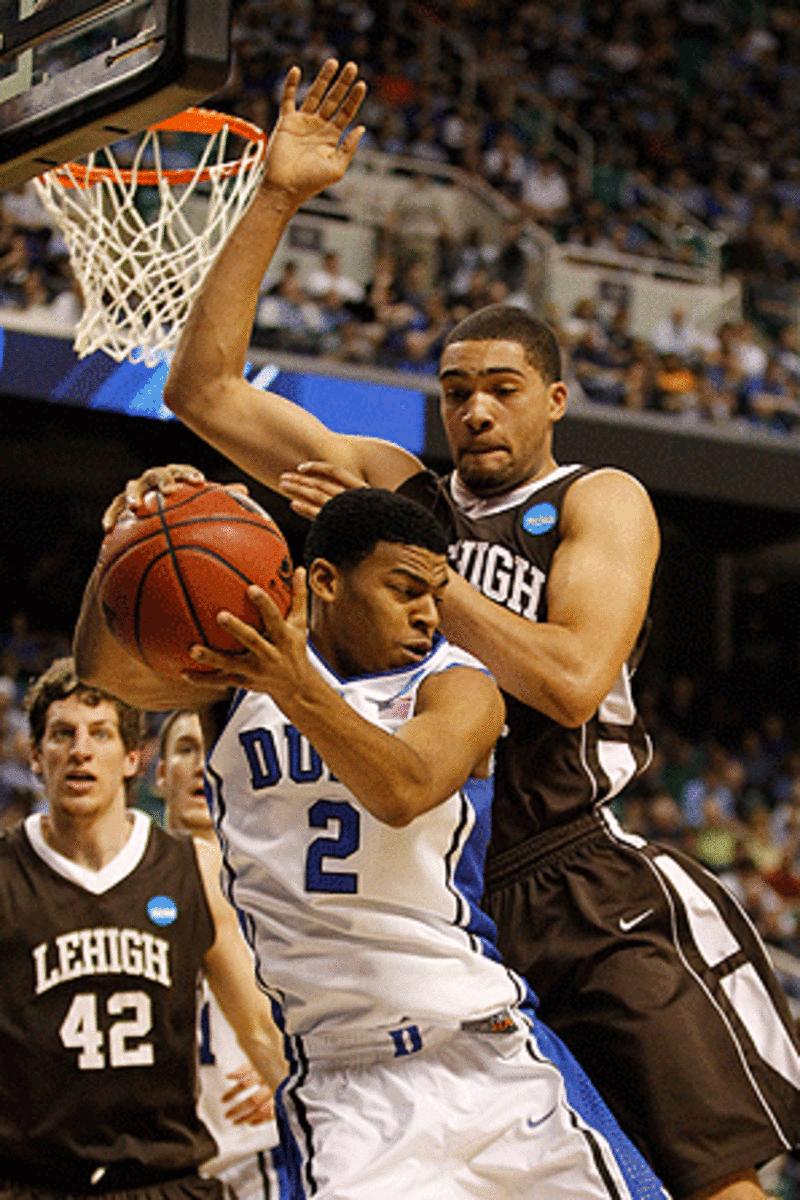Heavyweight programs could push Cinderella out of March Madness
NEW ORLEANS -- During a discussion last week at Tulane's law school covering the hot topics in college sports, a student asked a great question of a panel that included Arizona athletic director Greg Byrne, Missouri athletic director Mike Alden, NCAA associate director of enforcement Renee Gomila and attorney Timothy Epstein.
"You're now the NCAA czar," Andrew Sensi said. "You're all-knowing, all-powerful. ... What would be your first order of business?"
Alden's answer echoed the sentiment of many of the university presidents I interviewed for last month's "Change is Coming" project. "I would set up a separate division in the NCAA," czar-for-a-day Alden said.
The dream division of Alden -- and many of the athletic directors and presidents at the top of the Division I food chain -- is a group of like-minded, similarly funded athletic departments. Alden didn't say this, but a good rule of thumb would be the current BCS automatic qualifying conferences. (Whether the Big East is included in that group would depend on the results of the league's upcoming media rights negotiation.)
That brings up a few interesting possibilities from a fan standpoint. It might mean the end of or at least a severe reduction in bodybag games for football power schools. It might mean an even more elaborate major college football playoff than the one currently being hammered out by conference leaders. It also might lead to a drastic change in one of our favorite events.
It could evict Cinderella from her March Madness castle.
No more Lehigh over Duke. No more Northern Iowa over Kansas. No more Hampton over Iowa State. A division of strictly economic heavyweights might not want to split the take with have-nots. That's exactly what happened in football when the BCS was created. And while NCAA officials hope the presidents will let the association back into the football postseason in the uppermost division, it seems unlikely. Listening to people who work in the business, it seems more likely -- and more prudent -- that the schools would keep control in football and attempt to wrest away control in basketball.
The big schools aren't only tired of sharing their revenue with the small schools. They're tired of one-size-fits-all rules that treat a school with a $10 million annual budget the same as a school with a $100 million annual budget. "The reality of this is that Michigan State and Missouri and Arizona have a lot more in common and have issues that are different than Quinnipiac," Alden said. "That doesn't mean Quinnipiac isn't a fine institution, but when you're sitting at a table and you're trying to make decisions that we know are going to be impacting things in East Lansing or in Tucson or in Columbia or wherever that may be, it becomes very challenging when you try to get things accomplished that are going to have a direct impact on us."
Epstein, who last year represented Kentucky basketball recruit Enes Kanter in Kanter's ultimately unsuccessful fight against the NCAA, said he often hears similar complaints. "When you come to major infractions cases and enforcement issues, that is the frustration," Epstein said. "When I talk to coaches, the response is, 'We don't need to put up with this [synonym for cow manure]. We can start our own thing and make more money.'"
That isn't always the case. The Yankees still need the Royals and the Cowboys still need the Packers. But the big boys might be correct in this particular case. USC and LSU really don't need Quinnipiac and Montana. Why should they ever share money with those schools?
While an NCAA tournament without Cinderella might be less appealing to viewers, it might not bother broadcast companies. CBS, Turner and the like might be just as willing to pony up for a guarantee that every broadcast includes a name-brand program with a large fan base. "There is a certain brand value that Ohio State and Louisville and Kentucky and KU [Kansas] bring to the table," Alden said. "Now, you can throw four different teams in there that perhaps are different from those four. Throw in the four Cinderellas that won the games that were won this particular year and you have a completely different brand value for CBS and Turner. They're going to be going, 'Holy cow. We didn't pay for this.'"
Alden may take flak for saying that, but he spoke the truth. "While there are people that don't want to recognize that, people that want to be able to ignore that," he said, "that is absolute reality."
If this sounds like the CASH or LOOT proposals I've made the past two years, it should. Those may have been a little tongue-in-cheek, but they were born from conversations with the people in charge of conferences and major athletic programs. Their frustration is palpable. That's why the richest conferences backed the cost-of-attendance stipend proposal last year. They wanted to drive the wedge so deep that the little guys had to decide how badly they really wanted to field a major athletic program.
This change isn't inevitable yet. The rich schools probably would be willing to compromise and keep sharing if the less wealthy schools give in on certain governance issues such as the stipend. That would keep Division I intact, and it would keep March Madness as it is. But if the have-nots want to draw a line in the sand, they may soon find themselves wondering how they wound up poorer for the effort.
If Cinderella wants to stick around at the Dance and enjoy its spoils, she'll need to start capitulating to the demands of her wealthy stepsisters. Otherwise, she could find herself back in rags.






